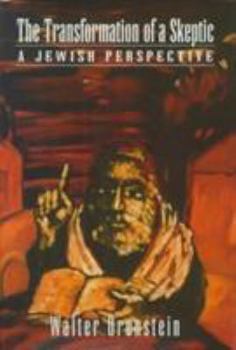The Transformation of a Skeptic: A Jewish Perspective
To find out more information about Rowman & Littlefield titles please visit us at www.rowmanlittlefield.com.
Format:Hardcover
Language:English
ISBN:0765761009
ISBN13:9780765761002
Release Date:November 1999
Publisher:Jason Aronson
Length:291 Pages
Weight:1.39 lbs.
Dimensions:1.2" x 6.4" x 9.2"
Customer Reviews
1 customer rating | 1 review
Rated 5 starsWorthy questioning
By Thriftbooks.com User,
'Be eager to study Torah and know what answer to give to the nonbeliever.' - Rabbi Elazar Many Jewish people in today's society are, like many people of all religious and ethnic backgrounds, relatively ignorant and untrained in the basis of their heritage. In a secular age, many see the trappings of old customs and religions more of a duty owed, a chore to be performed, given a small amount of attention, but these should...
0Report





















